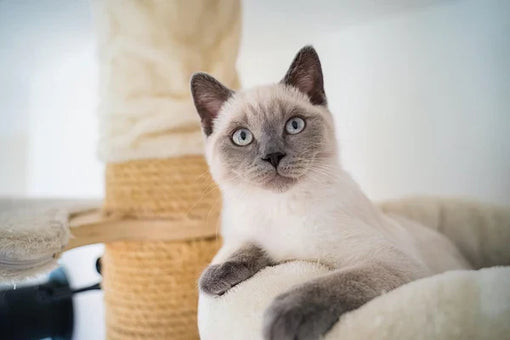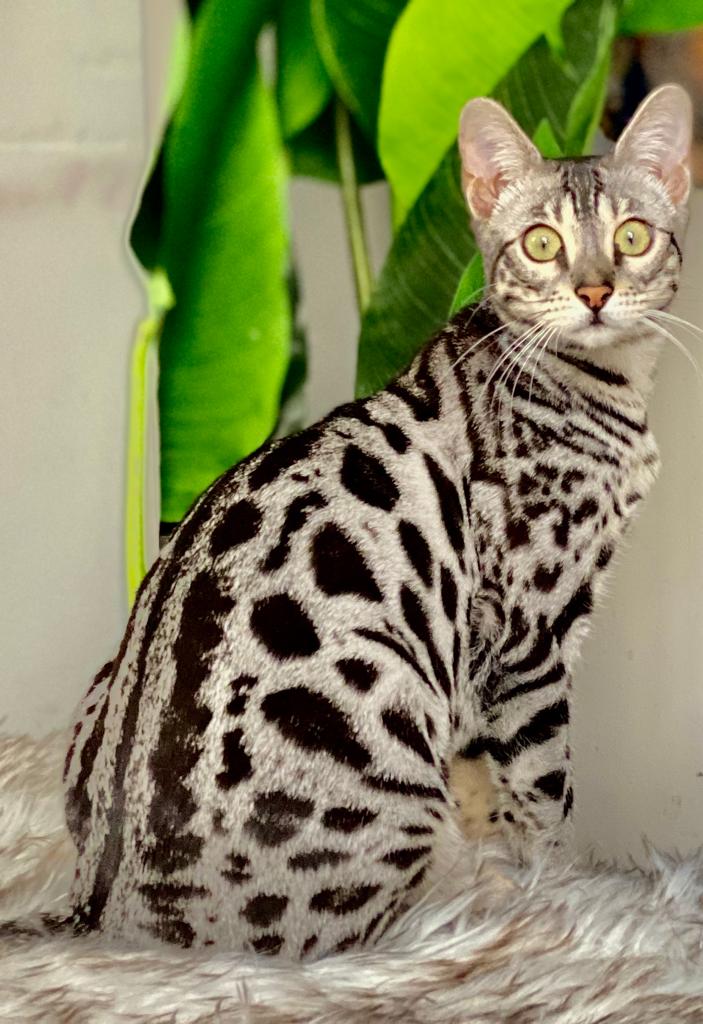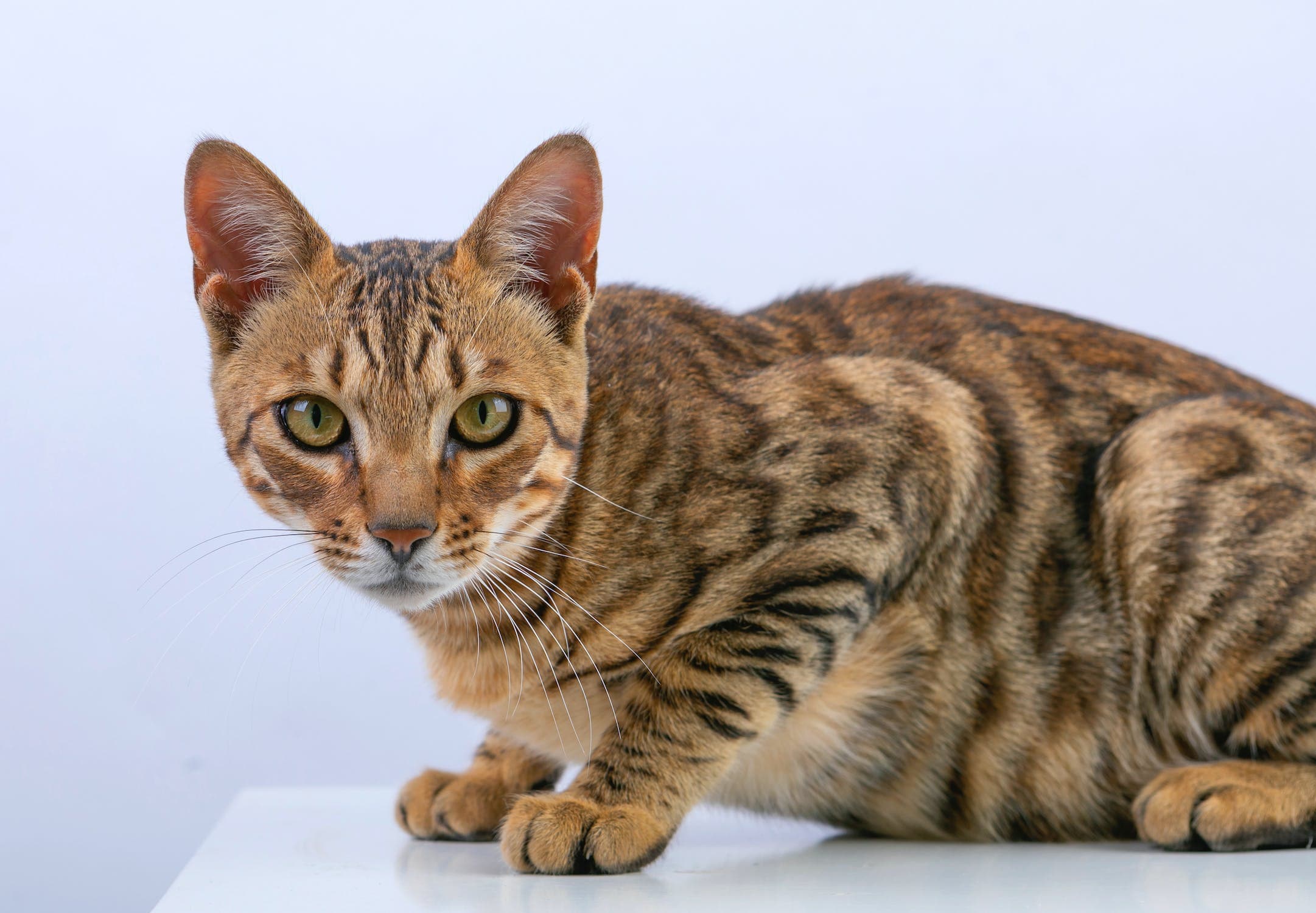
- Article published at:
- Article author: Catherine Ma
- Article tag: Articles
- Article comments count: 0
Drawer menu
With their striking leopard-like spots, muscular bodies, and high energy, Bengal cats are showstoppers. But don’t let their wild appearance fool you—Bengals are affectionate, playful, and incredibly loyal companions.
Thinking of adding a Bengal to your life? In this article, we’ll explore the history, personality, appearance, health issues, and what to expect when bringing a Bengal cat into your home.
The Bengal cat is a hybrid breed created by crossing domestic cats with the Asian leopard cat, a small wild feline native to Asia. The breed began to take shape in the 1970s, largely thanks to Jean Mill, a breeder in California who aimed to produce a domestic cat with the exotic appearance of a wild feline—but with the temperament of a loving pet.
The result? A strikingly beautiful and highly active breed that was officially recognized by TICA in 1983 and continues to grow in popularity around the world—including Canada.
If you want a cat that’s smart, energetic, and never boring, the Bengal might be your perfect match.
Playful and energetic: Bengals are like athletes—they love to run, climb, and explore.
Highly intelligent: They learn quickly and often enjoy puzzle toys, games, and even water play.
Affectionate: While independent, Bengals form strong bonds with their humans and enjoy social interaction.
Vocal and expressive: Bengals are known for their distinct meows, chirps, and trills.
Because of their intense energy, Bengals do best in homes where they receive lots of attention and stimulation.
Bengals are known for their wild appearance, muscular build, and luxurious coats. They typically weigh 8–15 pounds, with males on the larger end of the scale.
Spotted or marbled coat: Their markings are inspired by wildcats, making them stand out from other domestic breeds.
Glossy, short fur: Bengals have a sleek, silky coat that shimmers in the light.
Athletic body: Lean, muscular, and built for action.
Bright eyes: Usually green or gold, adding to their exotic look.

The Bengal’s coat is its crown jewel. No two are exactly alike, but they all share a luxurious, velvety texture and striking pattern.
Brown (golden, caramel, chocolate)
Snow (seal lynx, seal mink, seal sepia)
Silver
Charcoal
Spotted/Rosetted: Leopard-like spots or rosettes across the body.
Marbled: Swirling, asymmetrical patterns that look like marble stone.
Bengals are one of the few breeds whose coat may glitter in the sunlight—a unique trait caused by their hair structure.
Bengals are generally healthy, but like all breeds, they have a few genetic and breed-related risks to be aware of:
A common heart condition in cats. Reputable breeders screen for HCM in their breeding stock.
A degenerative eye disease that can lead to blindness. Genetic testing can identify carriers.
A developmental condition in kittens that often corrects itself with time.
A kneecap dislocation issue that can affect Bengal mobility if severe.
💡 Tip: Work only with licensed breeders who perform full genetic screenings and offer health guarantees.
Bengal kittens are vivacious, curious, and endlessly entertaining. They love to climb, leap, and explore every corner of their environment.
If you’re considering one:
Choose breeders who follow TICA standards and practice ethical breeding.
Expect to pay between $1,500–$3,000+ CAD, depending on pedigree and markings.
Ensure early socialization and vet checkups are in place before bringing a kitten home.
Shelters occasionally have Bengal mixes, so adoption is worth considering as well.

Bengals thrive in active, enriched environments. They are not your average lap cat—they need stimulation and space.
Make your home Bengal-friendly with:
Vertical space – tall cat trees and wall-mounted shelves.
Interactive toys and feeders – puzzle feeders, laser toys, tunnels.
Cat-safe outdoor access – leashed walks or enclosed catios.
Scratching posts and perches – to support their athleticism.
🪴 Catopia Co. Recommends:
Our sturdy, multi-level Floor-to-Ceiling cat trees are perfect for energetic Bengals who need to climb, scratch, and perch in style.
👉 Explore Bengal-Friendly Cat Trees
Adoption: $150–$400 CAD (rare in shelters).
Licensed breeder: $1,500–$3,000+ CAD depending on quality and lineage.
Show-quality Bengals: Can go higher, especially for rare colors.
Be prepared for additional costs like food, health care, toys, and scratching furniture—especially for high-energy Bengals.
The Bengal cat is a breathtaking blend of wild beauty and domestic charm. With their leopard spots, clever minds, and athletic energy, Bengals bring excitement and affection into the home.
They do best with committed owners who understand their needs for stimulation, play, and bonding. If that sounds like you, a Bengal cat might be your perfect feline companion.
👉 Get your home Bengal-ready with durable, stylish cat trees from Catopia Co.